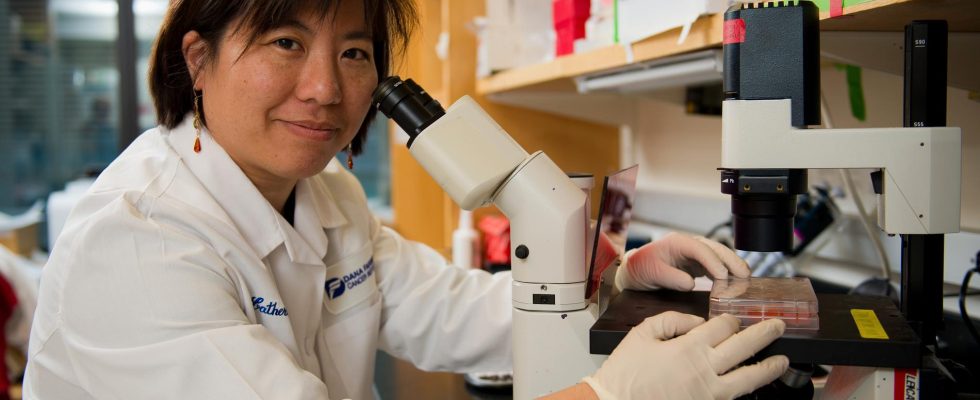unsaveSave
expand-left
full screenCatherine Wu is a professor of medicine at the Dana-Farber Cancer Institute and Harvard Medical School. She is praised for her work with personalized cancer vaccines. Photo: Sam Ogden/AP/TT
Personal vaccines should teach the body to fight cancer on its own.
With the help of a large Swedish prize, the world-leading researcher Catherine Wu hopes that the method will become standard.
– We have great faith that we have something important going on, she says.
It has been a long and tortuous battle to arrive at effective vaccines that fight the cancer itself.
– The problem is to target the immune system so that they recognize the small differences in a cancer cell compared to a healthy cell, and attack the cancer cell, says Urban Lendahl, professor of genetics and secretary of the Sjöberg Foundation.
One of the researchers who worked on the issue is medicine professor Catherine Wu, at the American Dana-Farber Cancer Institute, who is now being awarded the foundation’s prize.
Unique tumors
She and her colleagues have been working to find out which of the thousands of mutations in cancer cells are visible on the cell’s surface, and predict which ones might be suitable to target.
Since all tumors are different, the vaccine needs to be adapted to each patient. This is done by analyzing the tumor, comparing it with the patient’s immune system and then via a vaccine stimulating the body’s T cells to detect and destroy the cells in question.
– Here the vaccine comes after you get sick, because you have to see which mutations are in the cancer tumor first, says Lendahl.
An advantage of the method is that the T cells target a type of protein on the tumor cell surface that is only found on cancer cells, which prevents the T cells from attacking healthy tissue.
Money for research
The studies done so far seem promising, but have been done on a few patients with lung cancer, skin cancer, pancreatic cancer and brain cancer by various research teams around the world, including Catherine Wu’s.
Of the one million dollar prize, 900,000 goes to continued research.
– I am very hopeful that we will see the impact in large population groups and that it can become part of our standard offerings to make a difference for our patients, says Wu in a video clip.
She believes the award will make a difference.
– It’s a mixture of emotions, everything from speechlessness and disbelief to incredible gratitude. But also a sense of hope. We have great faith that we have something important going on. We will have the stability in the coming years to take us to the next level.
FACTSjöberg prize
The Sjöberg Prize is one of the largest Swedish prizes for medical research, and is awarded in collaboration between the Academy of Sciences and the Sjöberg Foundation to someone who has made a decisive contribution to cancer research.
The prize was established following a donation by businessman Bengt Sjöberg, who died of complications from cancer in 2017, the same year the first prize was awarded.
Unlike the Nobel Prize, the idea of the prize is to encourage ongoing research. Of the sum of one million dollars, $100,000 is a personal award, while $900,000 is given in grants for continued research.
Read more
